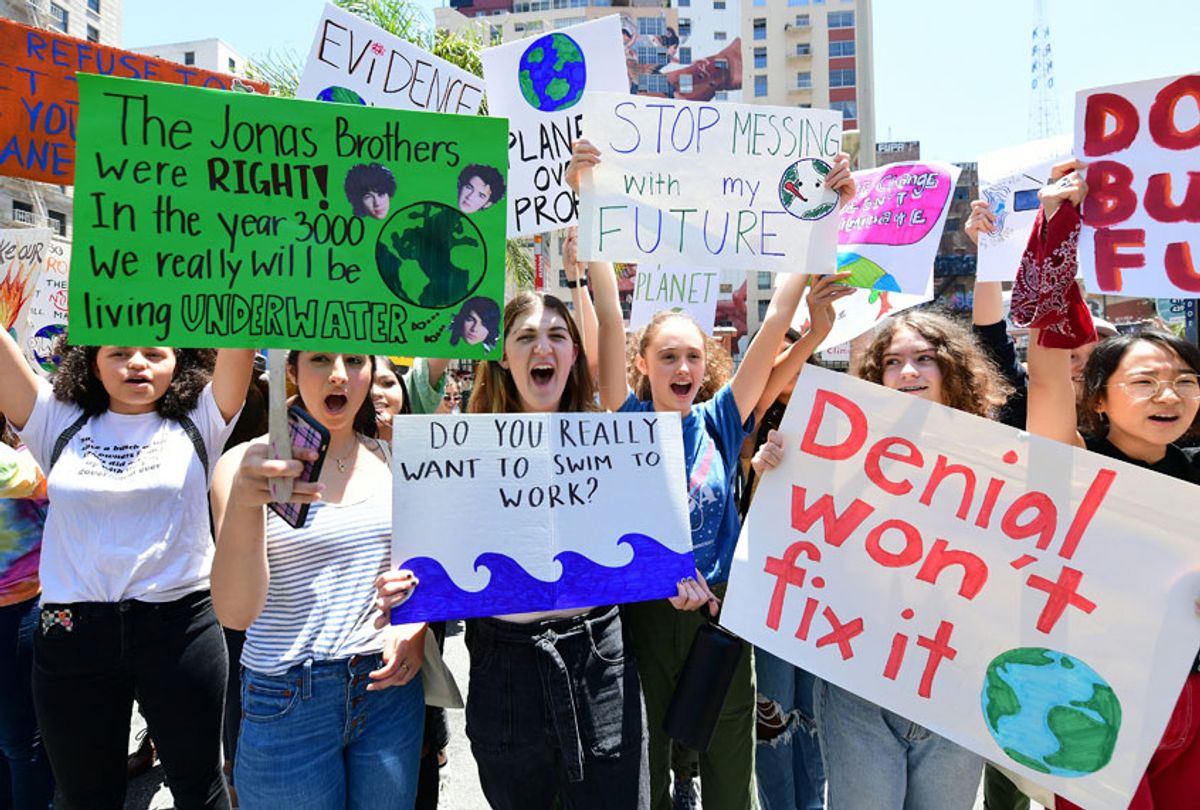We often talk about climate change in terms of melting icebergs, rising seawater, and elevated temperatures, but what about the impact of climate change on our health…today? A new report from The Lancet Countdown shows that climate change is already harming human health worldwide, especially young children and the elderly. The report also presents the lifelong health consequences that a child born today will face if the world continues on its current climate path.
Perhaps the most important takeaway from this 48-page issue is that unless the world collectively meets the Paris Agreement targets to limit global warming to below 2°C, climate change — and our inaction — will, with a cruel certainty, impair the health of future generations.
As greenhouse gas emissions continue to rise, we are seeing the health effects of a warming planet in real-time. In response, The Lancet Countdown was launched in 2016 as a global monitoring system. Every year, The Lancet Countdown presents an update of 41 indicators across five domains, including climate change impacts, mitigation actions, and public and political engagement. This new report presents findings from a collaboration between 120 leading experts from 35 institutions across the world, including the World Health Organization (WHO), to track the link between climate change and health.
Compared to a 1986-2005 baseline, The Lancet Countdown’s heat indicators found that there were over 220 million additional exposures to heatwaves in 2018. This is an increase of 63 million since 2017. While older populations in every region of the world are vulnerable to heat extremities, the highest increases in vulnerability were seen among the elderly living in the Western Pacific and African regions. It’s worth pointing out that rising temperatures also impact work productivity — and in 2018, a total of 45 billion potential work hours were lost due to rising temperatures (compared to the year 2000).
Out of 196 countries, 152 saw an increase in the number of wildfires between 2015-18, with India alone experiencing an increase of 21 million annual daily exposures. Wildfires pose a significant threat to public health, where health consequences can include smoke exposure and the contamination of drinking water. The resulting smoke can also affect areas not directly exposed to fires. In fact, the increased burning of fossil fuels continues to contribute to this issue of air pollution, which has resulted in around 2.9 million premature deaths across the globe in 2016, where over 400,000 deaths are from coal alone. A child born today will breathe more toxic air than in the past; in fact, more than 90% of children today, and urban residents of over 80% of surveyed cities, were exposed to fine particulate matter concentrations above WHO guidelines. This exposure especially leaves children vulnerable to an increased risk of heart attacks and strokes, and breathing problems, such as asthma.
Beyond health effects, heatwaves and other extreme weather events also impact our crops, and directly threaten global food security. The Countdown’s food security indicators show that over the past 30 years, increases in global temperature have reduced the planet’s crop yield, with a 4% reduction reported for key crops such as rice and maize. This will not only drive up food prices, but will also disproportionately impact young children and women who are pregnant or breastfeeding, as they are the most vulnerable to malnutrition.
Changing weather patterns may also favor infectious pathogens, and affect their risk and distribution. A disheartening finding is that 2018 was the most suitable year (in terms of the climate) for the spread of dengue, malaria, and Vibrio bacterial species (which cause cholera, among other diseases). The changing climate means that there is an increased likelihood of outbreaks of diseases, like cholera, even in countries where the disease is not generally found. Here, children will once again be the most susceptible to a rise in infectious diseases.
In between these gloomy findings, there is a glimmer of hope.
50% of the countries surveyed have either completed or are currently undertaking a climate change risk assessment. There was also progress in the number of countries providing climate services to the health sector, with an increase from 55 countries in 2018 to 70 in 2019. Upon tracking political engagement, The Lancet Countdown found that national leaders, particularly from small islands and developing states, are increasingly drawing attention to health and climate change at the UN General Debate.
Similarly, the use of renewable energy continues to increase when it comes to electricity generation — in fact, it grew by 45% in 2018, where 27% of the growth came from wind and solar sources. Fossil fuels continue to be the primary fuel for road transport, but the global use of clean fuel is increasing too, with an increase of 3.3% and 20.6% seen in the use of biofuels and electricity in road transport between 2015-6. There was also a reduction in European air pollution between 2015-2016. If countries, such as the UK and France, continue to commit to their goals of net-zero emissions by 2050, this will also result in a reduction in the years of life lost, valued at €5·2 billion (where a single year is valued at €50,000 as per the EU Impact Assessment Guidelines).
It may be slow and incremental, but it is progress when it comes to tackling climate change.
The Intergovernmental Panel on Climate Change (IPCC)’s 2018 Special Report on Global Warming of 1·5°C has set out clear numbers to tackle climate change — that global annual emissions must halve by 2030 and reach net-zero by 2050 to limit warming to 1·5°C. If these commitments are kept, a child born today will be able to see the world reach net-zero emissions by their 31st birthday, without having to worry about the consequences of the air they’re breathing in, the food they’re eating, or the water they’re drinking.


Shares